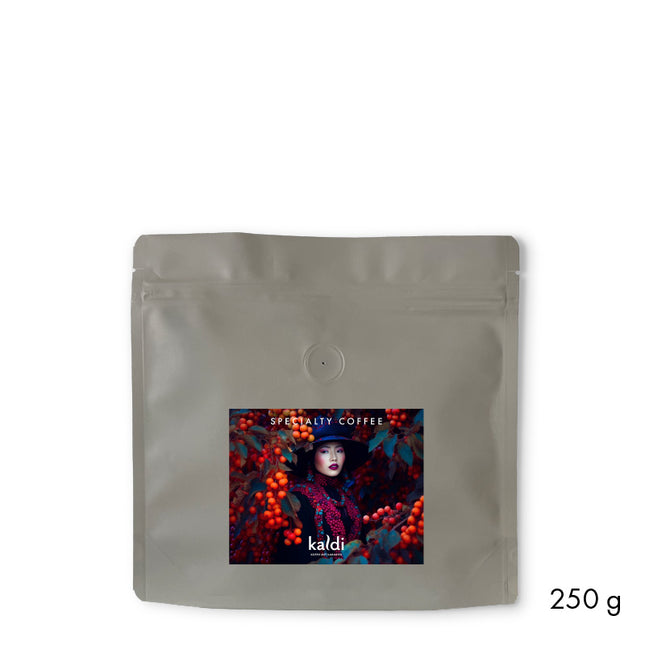A unique specialty coffee every month
Coffee beans with the best taste, produced in special microclimates - that is Kaldi's specialty coffee.
Specialty coffee is the term commonly used to describe “gourmet” or “premium” coffee and is the cream of the crop, so to speak. You will regularly discover unique aromas of fruits, flowers and spices in these quality coffees.
The specialty coffees are grown in ideal conditions and are distinguished by their complete taste and excellent quality. The unique aroma and flavour are the result of the correct altitude and climate of the plantation and the special nature and composition of the soil in which the coffee beans are grown.
At Kaldi, every month we feature a brand new and very unique specialty coffee! Each time the specialty comes from a different part of the world. This means that every month you can taste a new piece from the world of coffee. Be quick, because if a specialty coffee is sold out, it will not come back.
Buy Kaldi specialty coffee
Every month Kaldi has a new specialty coffee. The circulation of these is limited and therefore sold out quickly, so be quick! Kaldi specialty coffees undergo a cupping session beforehand in order to determine the SCA score. It may be called a specialty coffee when the SCA score is at least 80 points out of 100 points. In addition, the coffee must be hand-picked and have fewer than 5 defects. Want to know more about the cupping process? You can read it here.
Single origin or blend?
There is a wide variety of flavours in specialty coffee. A single origin coffee is a coffee that comes from a particular area, or from only one plantation. All the unique flavours from this area are evident in the coffee.
A blend is primarily about matching multiple flavours together to create a unique rounded taste and experience. Kaldi's specialty coffees are Single origin.
Roasting profile
The purpose of specialty coffee roasting is to accentuate the exceptional flavour of the coffee beans. The coffee is roasted light or dark.
- Lightly roasted coffee beans best retain the unique aromas and characteristics of the coffee-producing country and often have vibrant fresh, floral and fruity flavours.
- Medium roasted coffee beans often have a pleasant sweetness like honey or caramel, and take the sharp edge off the acidity. A slight bitterness is balanced with the soft acidity.
- Dark roasted coffee beans have more acidity and exotic aromas. The aromas the coffee beans get from this roast are deep and rich. A deep sweetness of chocolate and aromas of nuts and spices emerge.
Processing methods of coffee beans
Natural Process, or also called dry process, takes the longest of the two processes in terms of time. The picked berries are dried on patios in the sun for two to four weeks. The coffee beans are extracted from the dried berries using a machine and dried again for several days until the desired moisture content is reached. This process often imparts a distinct sweet aroma of ripe fruit to the coffee.
The process for washed coffee, or wet process, is faster and more controlled. Usually this is a higher quality coffee. The coffee berries are fermented in water tanks for one to five days during this process. The water is drained off and the berries go to a washing station, where the berries are separated from the coffee beans. After this, the beans are dried. Coffee beans processed in this way have fresh and clean aromas and a soft body.





































